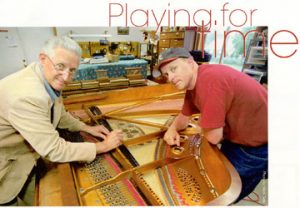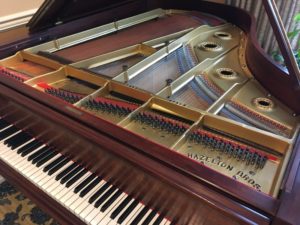I remember when I became a piano tuner for the first time
Learning how to become a piano tuner “on the job”
I spent 4 hours one Saturday tuning the piano with tools my dad had sent to me. I did improve the piano, but it was far from being in tune. Over the next few months, I improved my piano tuning technique. After tuning my piano at home several times, I learned to tune the intervals at the proper temperament. After that, it still took several years of refining this technique before I was ready to work professionally.
The Piano Technicians Guild
I then joined the Piano Technicians Guild and studied for the PTG Exam. I can truly say that the 3 part test (written, bench exam and tuning proficiency) was harder to pass than my MA Comps at the University of Iowa.
I passed my PTG test and became a full registered member of PTG in 1979!
2019 will mark my 50th years as a professional piano technician. I have a vast knowledge of pianos and how they work! At times, I may charge more than my colleagues who have been in the business for a short time. My R.P.T. (Registered Piano Technician) status puts me in a select group of the best piano technicians in the country
If you want the best and most qualified people to work on your piano, insist on an RPT.
Sincerely,
Dan Malloy



